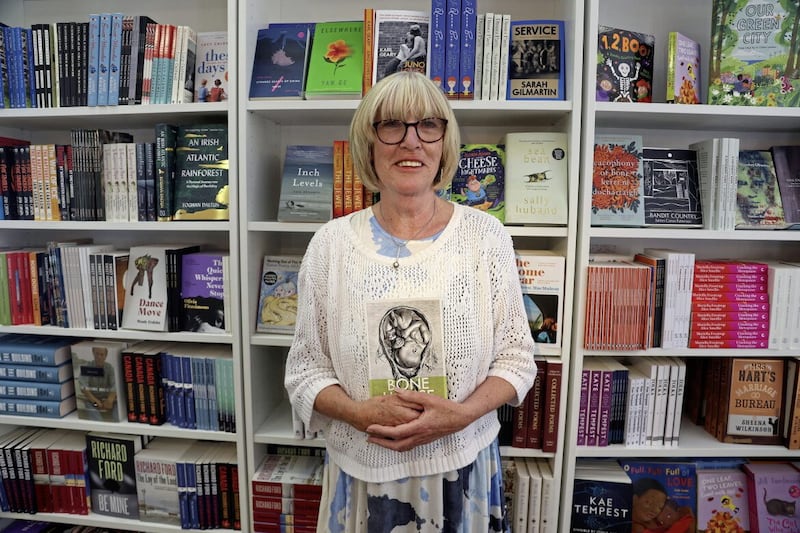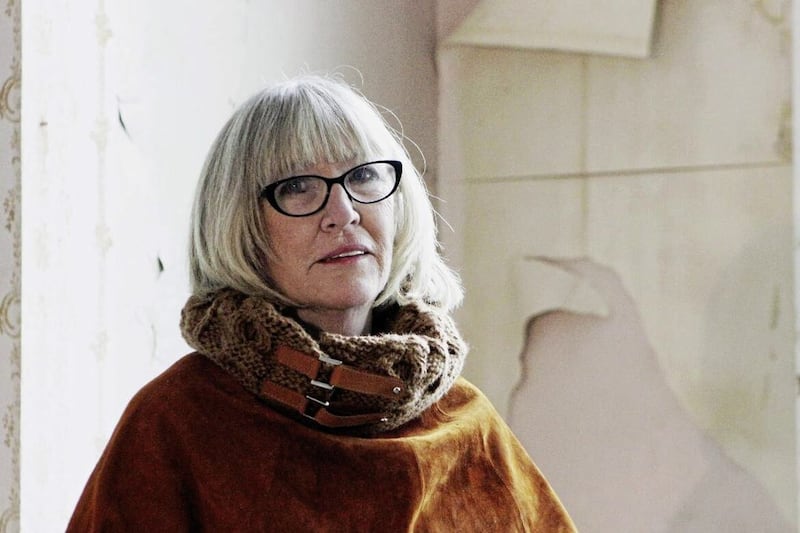THERE's nothing like a little bit of introspection to help make sense of life's great imponderables and probably no-one better placed than a poet to help the rest of us arrive at some conclusions.
But for Co Down's Moyra Donaldson, it isn't a simple case of expounding some great universal truth that has hitherto remained hidden; it is more a need to share some thoughts on the human condition in general – and have us "think and feel and wonder and connect" in response.
"One of the things I like about poetry is that it doesn't really provide any answers – that's not what it's there for," muses the 66-year-old who lives on the Ards peninsula and is currently working towards her yet unnamed 10th poetry collection.
"It doesn't answer questions, but it makes us look at our own humanity and the world around us. Poetry doesn't fix anything but it can certainly connect."
She is currently 'connecting' with poetry in a different way, having been commissioned to write a poem for Maria McManus's creative company, Quotidan, which will translate into an augmented reality video to be launched as part of this year's Belfast International Arts Festival in October.
"This 'Pop Up Poet' initiative involves me performing the poem while surrounded by six cameras," explains Donaldson, a former recipient of the major individual artist award from the Arts Council NI and founder of the Mairtín Crawford Awards – as part of Belfast Book Festival – in memory of the influential Belfast writer and poet who died in 2004 aged 36.
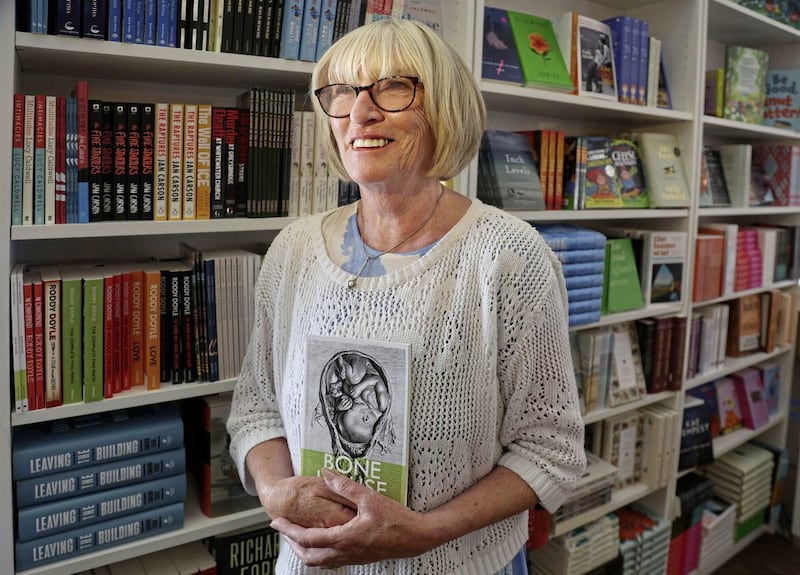
"Using new technology, a 3D image of me is built up. It's quite different to anything I've done before and I see it as a brave new platform because poetry can be more than words on a page. I do think, though, that part of poetry is the sound of it, the music of it, and poetry read aloud is important because the poet works very hard on the musicality of the words as well as the meaning, so both aspects are important."
The poem, called Lost From the Luminous City, is about the starling murmuration in Belfast which has more or less disappeared, ostensibly due to light pollution in the city.
"I can remember the murmurations over Belfast and it being in the news that the starlings had now left the city, so it was quite a challenge to write a poem about what was missing, really, rather than what was there," she reflects, "but it is all very exciting. People will be able to see the finished piece as part of the Belfast International Festival at a launch and exhibition at Lanyon Place train station at the end of October."
Melancholy for what is lost is a regular theme for the poet whose last collection, Bone House, explored the mother-daughter relationship – zooming in on the complex relationship she had with her own late mother and the fragile balance between competing desires and expectations.
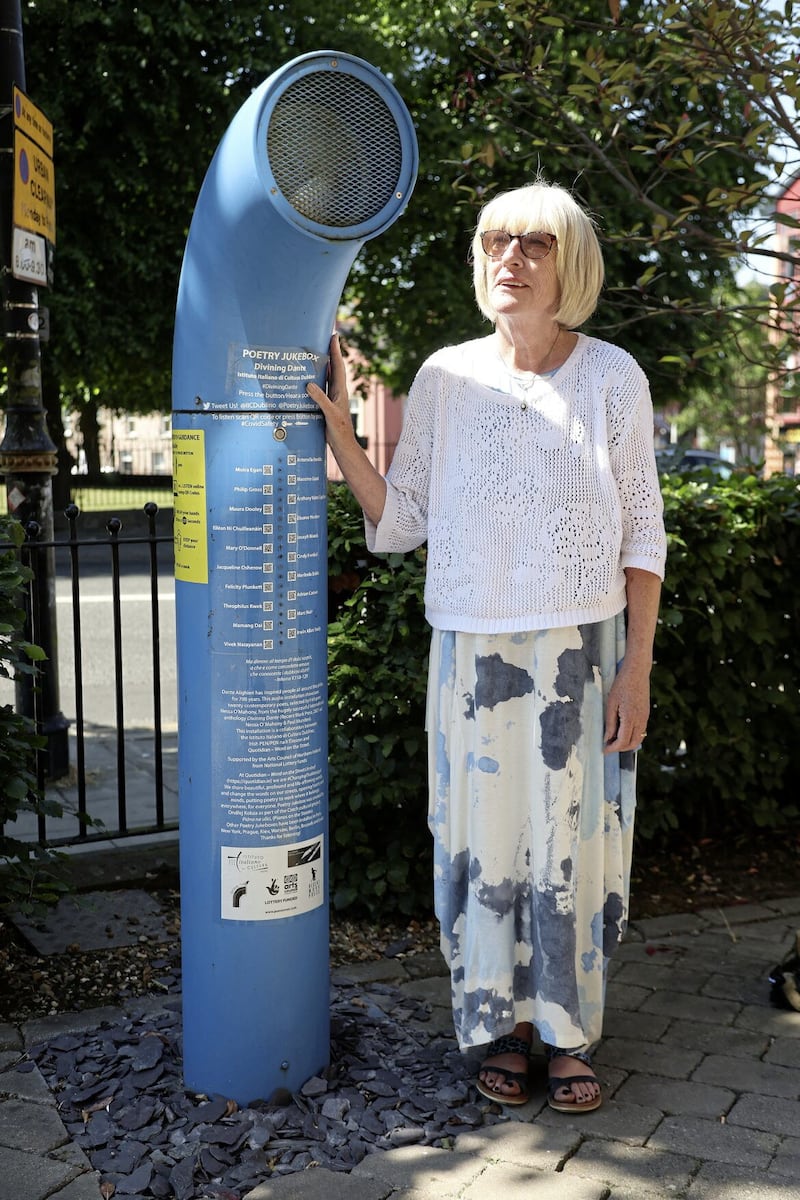
"My mother and I had a very intense relationship; we loved each other intensely, but we fell out quite a lot, too," reveals the mother-of-two (daughters, Claire and Jannagh).
"I suppose what Bone House was doing for me was exploring the legacy of my upbringing, that kind of evangelical Presbyterian upbringing and the effect that has on relationships and people. I felt it suffocated me a bit when growing up and I think my mother suffered from it as well, in terms of wanting to live an absolutely full life but being kind of constrained by family expectations and her own upbringing.
"I had a very loving childhood, but I think the problem was the very rigid belief systems and very rigid attitudes towards what was proper and what wasn't. I was really interested in looking at that and the kind of effect it can have for generations."
Becoming a "besotted" grandmother was one of the impetuses to look the subject square in the face, letting go of past fears and "quiet cruelties" and looking forward to new beginnings with granddaughter, three-year-old Daisy, her "muse" for this new collection of poems, to be published again by Doire Press.
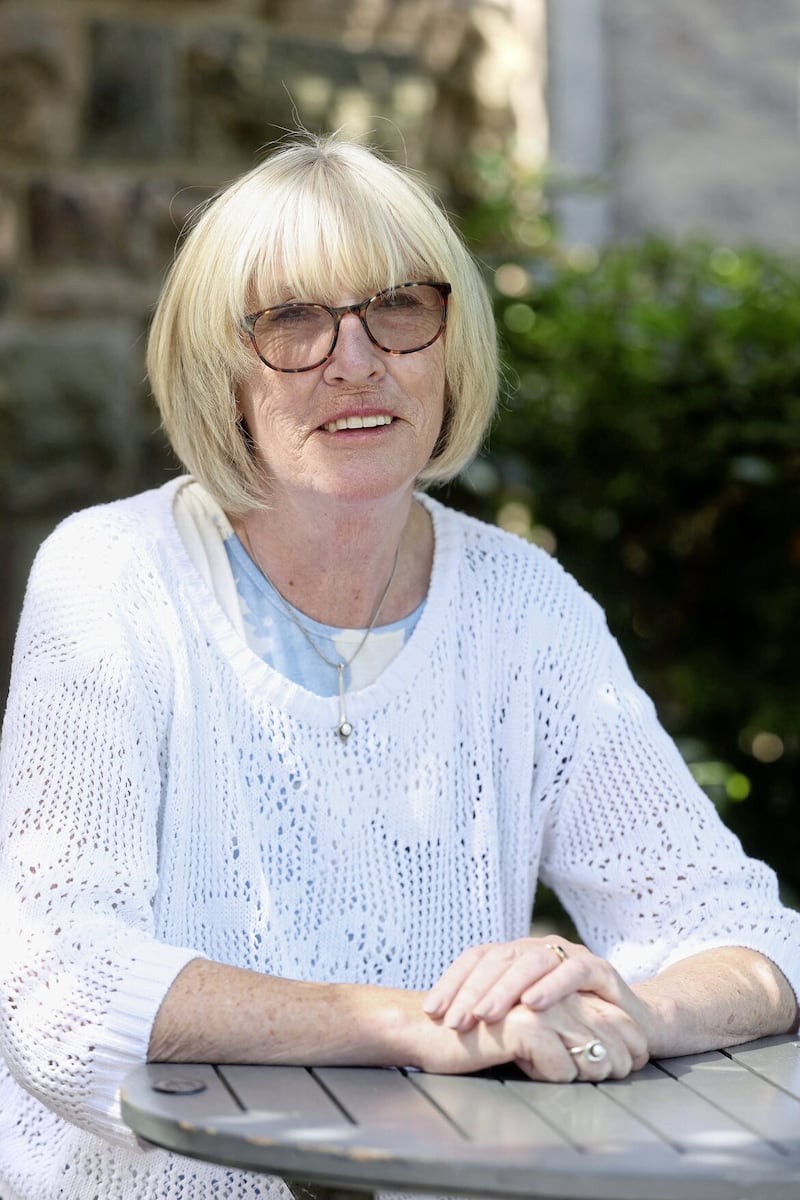
It is still a work in progress with no clear theme as yet emerging, but grief and loss again "inevitably come into it".
"Like a lot of people, the last few years have made me turn inward and appreciate small things and the day-to-day that sustains us," reflects Donaldson who recently spent a week as guest tutor at a writing school in a Moorish castle in Portugal. But, as well as fallout from the pandemic, she was affected more recently – and to a much greater extent – by the loss of two very close friends: the north Belfast poet, Myra Vennard, and Belfast-based playwright, Jo Egan.
"I was impacted greatly by the loss of these two people," she confides. "Jo and I were very close friends and the suddenness and tragic nature of her death [a car accident on Christmas Eve 2022 in Co Wicklow] was quite overwhelming.
"I think a lot of the time what I do, and what poets do, is write, not so much for therapy but to try to make sense of things that don't make sense and to try to kind of understand what we are feeling, so I think a by-product of that can be quite therapeutic. I don't do it for therapy, but putting things down and trying to put words to things can be really helpful sometimes."
Along with the grief of losing friends, she writes about finding comfort in nature – "at the same time knowing that climate change is bringing such challenges" –and acknowledging the "celebration of small things that bring joy and pleasure".
"The new collection will be a mix because life, really, is a mix," she reasons. "I want it to capture the whole range of being human and that includes worries about the environment and our future place in it – the world can feel like a very overwhelming place at the moment, I think."
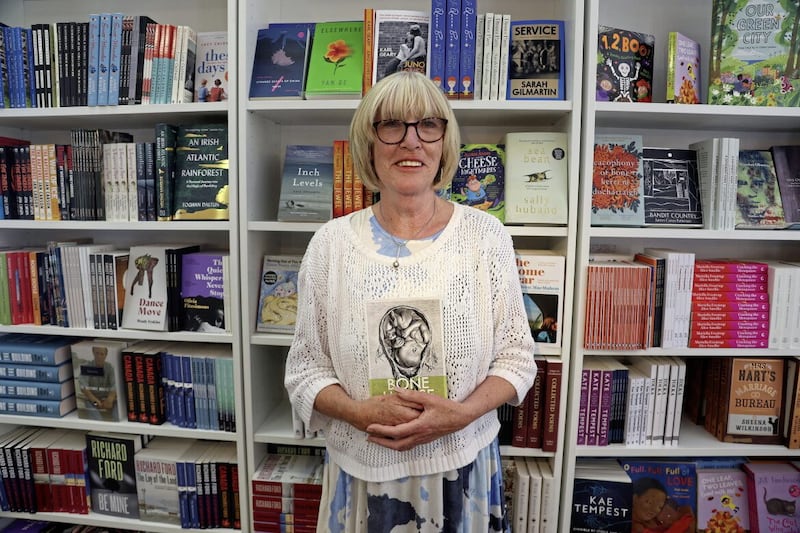
In the midst of all the outside churning, personal milestones are noted: her 30th wedding anniversary with husband John Liddle inspired two short verses celebrating the wonder of "growing a pearl" from the day-to-day "grit" of a marriage, while the poem Granddaughter revels in simple joys – "the wonder of water falling" – and being given the tired old world back, "all new again".
"My granddaughter is a great source of joy," declares Donaldson, an English graduate who worked as a social worker until her retirement six years ago: "Like a lot of people working in that field, by the time I retired, I felt burnt out. It can skew your way of looking at the world, sometimes, often seeing the darker side."
But soon-to-be-four-year-old Daisy always helps restore her equilibrium: "The line [in the poem] where she gives the tired world back to you really encapsulates everything that I felt after becoming a grandmother. It is like seeing everything through fresh eyes again; it's just beautiful."



